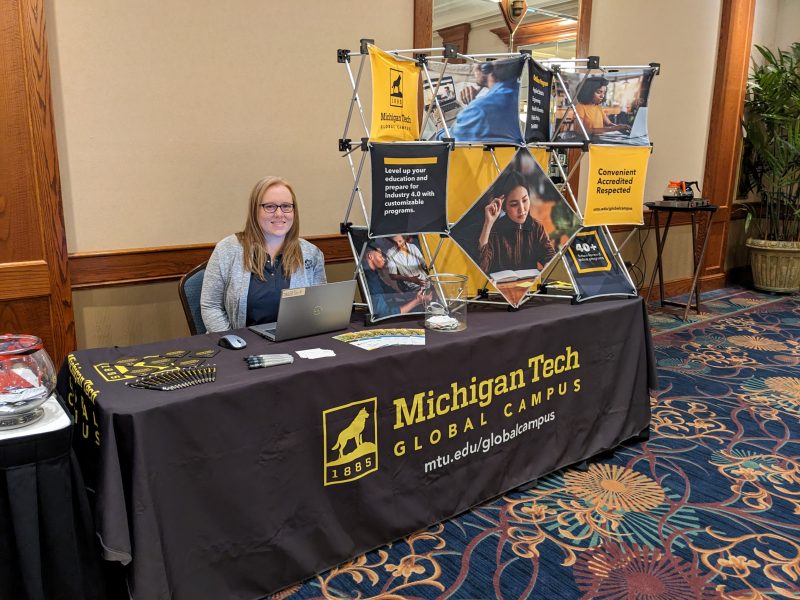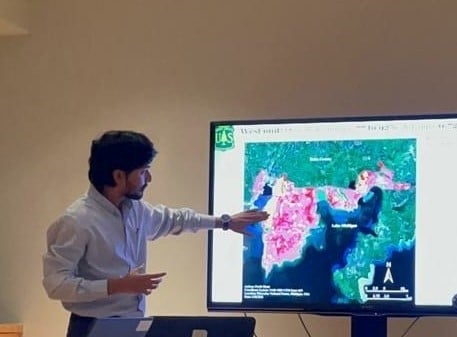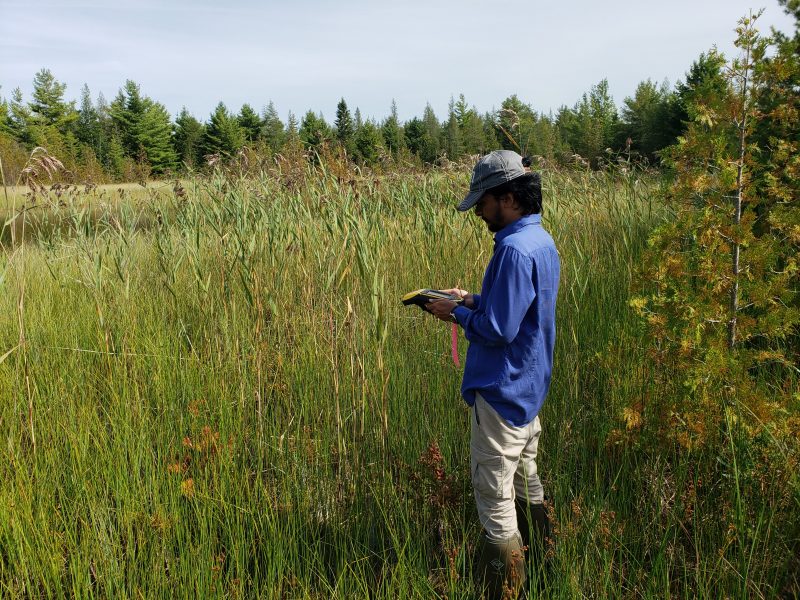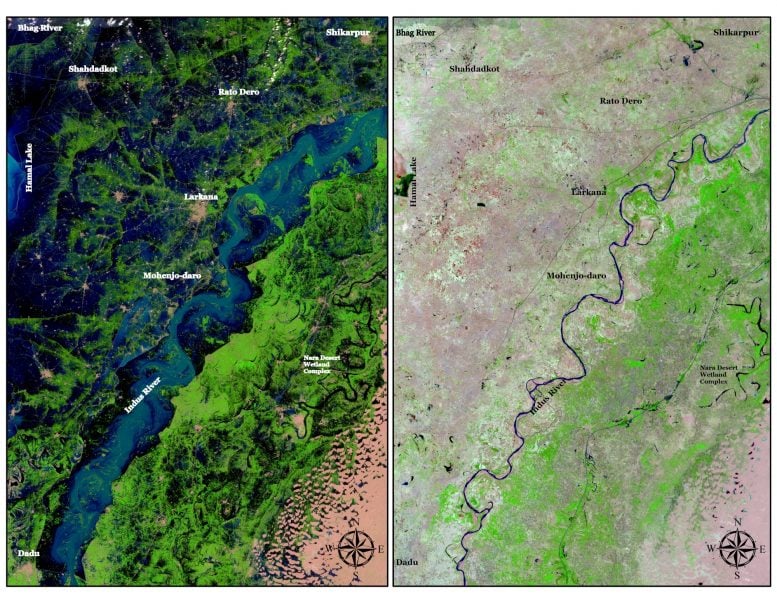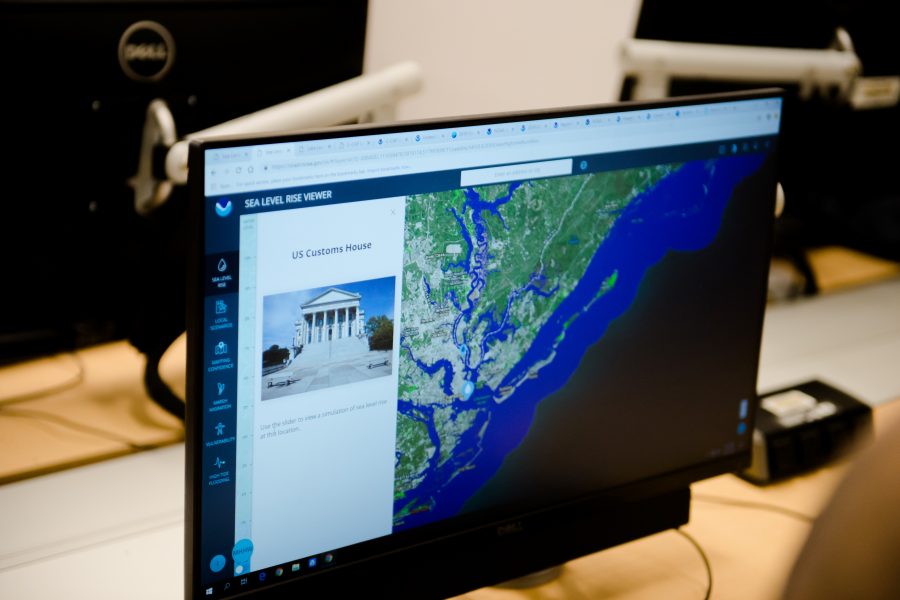Guiding Students With Expertise and Representing Global Campus With Passion
Michigan Tech Global Campus, which is responsible for housing MTU’s online graduate programs, continuing education, and more, is staffed by a small but mighty team. You previously learned about Vice President David Lawrence, such as his rigorous schedule and his passion for developing partnerships. Then, Brian Hannon, Director of Strategic Partnerships and Alliances, and former MTU hockey star (or should we say celebrity!), skated across the digital pages of this blog.
But there are a few people left to write about, two team members and student champions you need to meet. And one of them is Amanda Irwin, Graduate Admissions Manager for Global Campus. She was kind enough to take some time out of her busy schedule to let me interview her.
Before we get into the details of what you do at Michigan Tech Global Campus, tell us a little more about you.
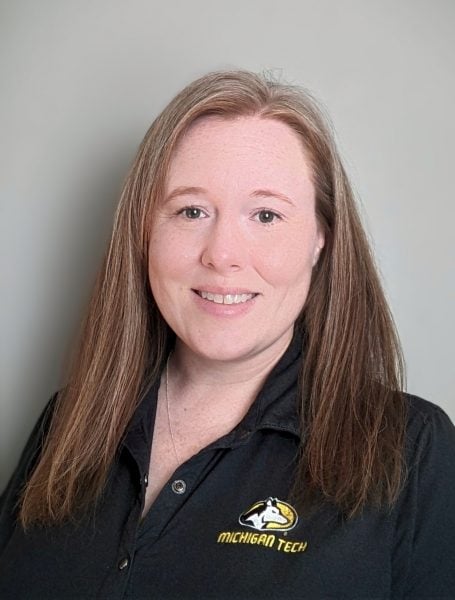
In 2009, I graduated with my Bachelor’s in Business Administration (BBA), majoring in Accounting, from Saginaw Valley State University (SVSU). While completing my degree, I also worked full time in workforce development and case management.
That is when and where I found my passion for higher education. In my job, I worked closely with dislocated workers, helping them take advantage of grant money for retraining. And I loved it.
That experience is what launched me onto the path of helping students with their educational journeys. I am also a mom of four super cool kids!
What, exactly, do you do on your job?
In my role, I help prospective students through all stages of the inquiry and enrollment process. In doing so, I answer questions about our programs and application process. But probably the most impactful of my duties is walking students through the admissions process step by step, detailing the timeline, and letting them know what to expect next. I think students appreciate the insight. They feel more at ease knowing what the process will look like from start to finish.
What was your previous role before coming to Michigan Tech Global Campus and how did that experience prepare you for this one?
Well, I have worked in admissions since 2012, at a local university and at a community college. The decision-making process is very different for a high school student coming to their freshman year of college vs. that of an adult student returning later in life (or starting for the first time). These experiences with students have provided me with perspective. They’ve also opened my eyes to so many different life paths that people will walk through. Lastly, my previous roles have helped me develop a deeper understanding of diverse student experiences. And patience and empathy, of course!
What is the favorite part of being the Graduate Admissions Manager for Michigan Tech Global Campus?
Talking to cool people is my favorite part of the job. I enjoy being in a relationship and making a connection with students, chatting about kids or the weather or sports….finding that common ground with them. A close second is hearing from students semesters later and learning that they are doing well and planning their graduations. In other words, it is that feeling of accomplishment in knowing that you helped them get started.
Why have you chosen to work in online learning? That is, what about online learning resonates with you?
I think online learning is the wave of the future, especially for our adult learners. Online learning offers the flexibility students need to be able to say, “Yes, I can move toward that next goal while working at my current job or caring for my family, and so on.” Online learning allows nontraditional students to fulfill their personal and professional goals and to finish what they started. Or get a brand new start altogether.
Along with guiding students through the application process, you’ve often done outreach for Michigan Tech Global Campus. Can you say a little more about this work?
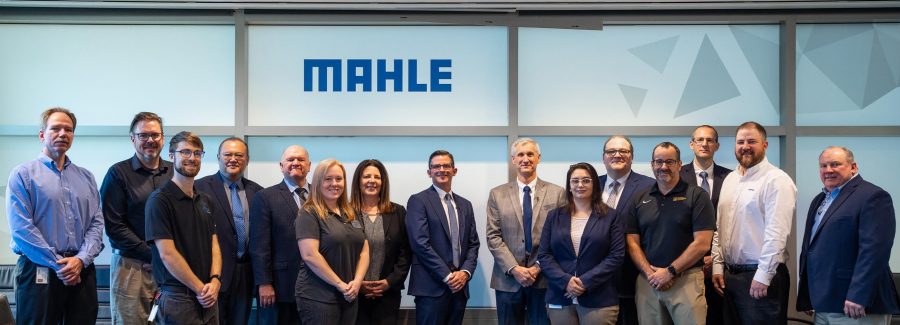
Well, I regularly travel to and participate in our corporate partner events to represent Michigan Technological University and Global Campus. For instance, in Fall 2023, I attended corporate fellowship signing ceremonies for both ITC (September) and MAHLE (November).
I’m also very active in my local chamber of commerce where I go to various events and spread the word about Michigan Tech and Global Campus. One of the most memorable events was the Midland Business Association’s (MBS) Women in STEM panel discussion, in which female researchers and leaders talked about some of their challenges in STEM roles. This event was partially sponsored by Global Campus. Global Campus was also a program sponsor for one of our WakeUp Midland networking breakfast events. These events offer a great opportunity to make business contacts, enjoy breakfast, and create networks.
And when Michigan Technological University sponsored Dr. Ruth Archer at the Lean Summit, I set up a Global Campus table there.
The goal in all of these events is getting exposure for Global Campus, building on the respect and reputation of our little school in the north, and letting people know that we can bring Michigan Tech to them.
When you are not working, what do you like to do?
I love helping with my kids’ sports teams, especially basketball. Watching them play any sport is where you will find me most weekends.
When we aren’t playing sports, I enjoy adventuring with my husband and kids. We fish, explore parks, go rock hunting, go on waterfall adventures. The whole family loves going for a drive and searching for eagles and other cool birds.
I also enjoy some recreation league sports that I play in a few times a year, hanging with family and friends, and doing puzzles.

Anything else you’d like to add?
If you have questions about any of Michigan Tech’s online programs or the application process, please reach out to me at globalcampus@mtu.edu. You’ll get friendly service from someone who knows our programs and the application process inside and out.
